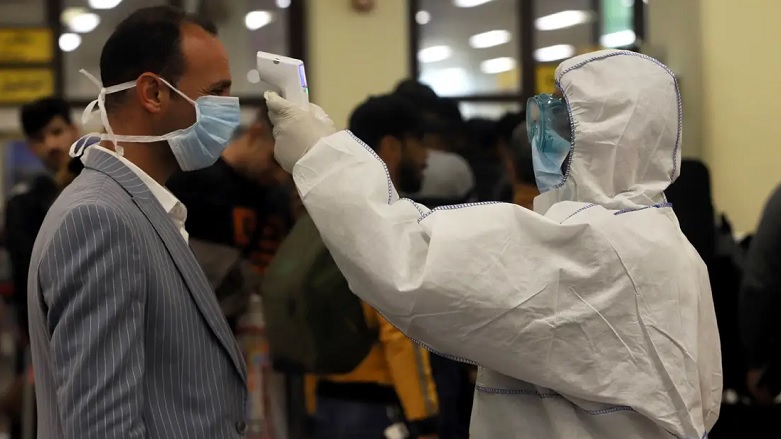KRG confirms three more coronavirus cases as five others recover

ERBIL (Kurdistan 24) – Five people infected with the coronavirus in the Kurdistan Region have recovered, local authorities in Sulaimani said on Monday as the regional Health Ministry confirmed three new cases.
“The five people who recovered have been sent home,” Sabah Hawrami, Director-General of Health in Sulaimani Province, said in a statement.
“The condition of those still infected is stable and we hope to send them back home soon after they recover,” he added and advised those who have recovered to self-isolate for 14 days once home as an added precautionary measure.
Following the Sulaimani announcement, a statement by the Kurdistan Region Health Ministry confirmed three new infections in the autonomous region.
The Kurdistan Regional Government (KRG) has reported a total of 37 coronavirus cases in total. One of them has died and nine others have recovered, according to the Health Ministry.
It has been one of the governments in the region and the world that began enacting precautionary measures to prevent the spread of the disease early on, as it became clear that it was on its way to becoming a pandemic.
KRG measures aimed at containing a domestic outbreak include temporarily closing schools, declaring extended public holidays for government workers, canceling all religious services, and announcing a temporary curfew in the provinces of Erbil and Sulaimani. The region has also been quick to circulate information on the virus and guidelines on best practices to prevent infections and spread.
Read More: KRG extends curfew by 72 hours as authorities report more coronavirus cases
It also previously stated that anyone who has recently returned “illegally” to the Kurdistan Region from Iran “must immediately report to the medical teams” for appropriate health checkups, warning that “Failing to do so will lead to mandatory quarantine and prosecution under the law for the intentional spread of the virus and illegal border crossing.”
Iran has emerged as the epicenter of the outbreak in the Middle East, with Tehran having reported close to 14,000 infections and over 700 deaths. Reports indicate that those numbers are much higher amid allegations that Iranian authorities are underreporting cases.
The disease, officially known as COVID-19 and recognized by the World Health Organization (WHO) as a global pandemic, has reportedly infected over 181,000 and killed more than 7,100 worldwide since first appearing in China in late 2019.
Editing by Kosar Nawzad and John J. Catherine
